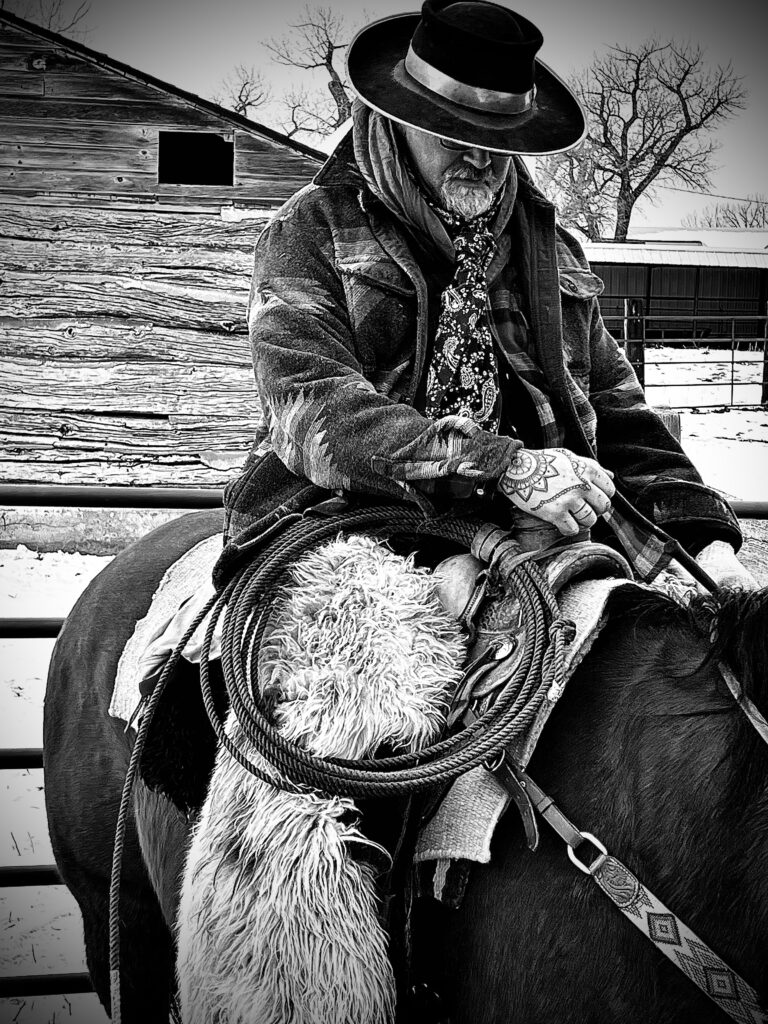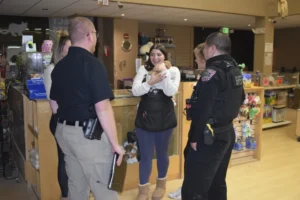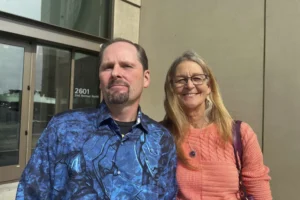Additional Rights Restored for First-Time, Nonviolent Felons
Rights include serving as a juror, elector, holding office and possessing firearm
- Published In: Criminal Justice
- Last Updated: Aug 21, 2023

Sen. Eric Barlow (R-Gillette) listens to a morning legislative session in February in the Senate chamber. Barlow sponsored Senate File 120, which restored additional rights, such as the ability to serve as a juror and to knowingly possess and use a firearm, for individuals convicted of first-time, nonviolent felonies. (Photo by Michael Smith)
By Shen Wu Tan
Special to the Wyoming Truth
Kelly Stone, a Gillette resident convicted of a felony DUI about a decade ago, lost his right to vote for about six years. Then, in 2017, that right was restored, and he participated in county and state elections.
Now, the 42-year-old is applying to have other rights restored, thanks to a new change in a law that went into effect last month.
First-time, nonviolent felons became eligible on July 1 to have their rights to serve as an elector or juror, to use or knowingly possess any firearm and to hold any office of honor, trust or profit within Wyoming restored.
“This has been an issue for a lot of people for a lot of years, people who are essentially nonviolent offenders who kind of get the worst end of the deal, because you get your rights…taken away from you,” Stone told the Wyoming Truth. “And now we can reapply and get them back. And a lot of people, they’re fighting addiction recovery. . . .”
Stone said that once people get help and become active members of society, then “they should be able to have their rights returned to them just as if nothing ever happened.”
Last month, the Wyoming Department of Corrections (WDOC) began accepting applications and evaluating whether discharging individuals are eligible for restoration of rights certificates. As of Aug. 14, the WDOC had approved 105 applications for these certificates and denied 25, said Stephanie Kiger, the department’s public information officer. There are currently 83 pending applications, including six that the WDOC is reviewing for discharges from prison and probation to determine if they qualify for rights restoration.

People released before July 1 who meet the eligibility requirements must apply for a certificate, along with a copy of their judgment and sentence, discharge paperwork and a government-issued identification card or driver’s license. Those placed on unsupervised probation, regardless of their release time period, must apply for restoration of rights.
Even if individuals don’t apply, their rights will still be restored automatically if they are eligible and released on or after July 1, Daniel Shannon, WDOC director, told the Wyoming Truth. However, the burden of proof of these restored rights then lies with the individual.
“The WDOC will automatically begin a review process to determine if they are eligible for the restoration of rights, which will take place prior to discharge,” Kiger said. “The review and qualification process is the same for these offenders. Their approval or denial will be dependent on the same factors as the applicants.”
Shannon did not take a position on the issue. “It’s my belief that the department of corrections should not influence legislation,” he said. “On the contrary, it’s my responsibility to inform legislators and committees of information as to how it affects the department of corrections and affects our community and our society.”
History of the restoration of rights legislation
As outlined by Senate File 120, these rights will be restored five years after individuals have completed their sentences, which includes periods of probation and parole. The bill was introduced in January and signed into law on March 17.
“Do the crime, do the time,” Sen. Eric Barlow (R-Gillette), sponsor of the legislation, told the Wyoming Truth. “But once that is complete, it seems that a restorative justice system should actually restore the person fully with all the benefits and responsibilities of citizenship.”
During his first campaign for office, Barlow said he went door to door in neighborhoods and encountered many people who told him that they were convicted of felonies and couldn’t vote. The majority reportedly said they would vote if their voting rights were restored. Barlow later became involved in efforts to restore voting rights for those convicted of first-time, nonviolent felonies who had completed their sentences. Since 2017, 3,733 people have had their right to vote restored.
“That was a good start for folks who had paid their debt to society and were leading productive and law-abiding lives,” Barlow added. “But I was also asked about how they could get their Second Amendment rights and other rights back…. Now they, and likely many others, can apply for the remainder of their rights, and from what I am hearing, many are very appreciative of this opportunity.”
Individuals are only eligible for restoration of rights if they have convictions from the “same occurrence or related course of events” and have not been convicted of any other felonies, the law states.
“This means that a conviction can have multiple non-violent felonies if they happen at the same time or in a logical course of events,” Kiger added. “If an individual has multiple non-violent felony convictions, that individual will not qualify for the restoration of rights.”
Certificates issued by WDOC will list the date on which all rights are restored. A conviction of a new felony after the certificate is issued will void the restoration of rights.
Stone, a former horse trainer, said he was swept up in the cowboy culture of alcohol and drugs during his twenties, leading to an addiction to alcohol. He was charged with multiple DUIs until he hit his fourth one, making it a felony offense. Stone estimates he spent about 90 days in jail between all of his DUIs.
“The right to vote for me was probably the most important one,” he said. “The other ones, I’m glad to have them…. Once you don’t have them, you definitely understand that it’s a privilege to have them.”
After his DUI felony, Stone sought treatment before going to the Campbell County drug court and opted out of jail time to continue a life of sobriety. Now, he manages two nonprofits he founded years ago, Ride and Shine Equine Assisted Therapy and Sunrise Wellness and Recovery Center, and installs smart barn panel systems.
“I believe it’s a step in the right direction,” he said about the restoration of additional rights. “And I think that through small steps, they turn into bigger steps sometimes.”













